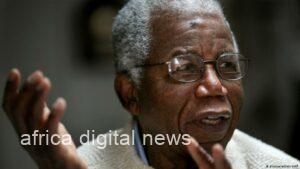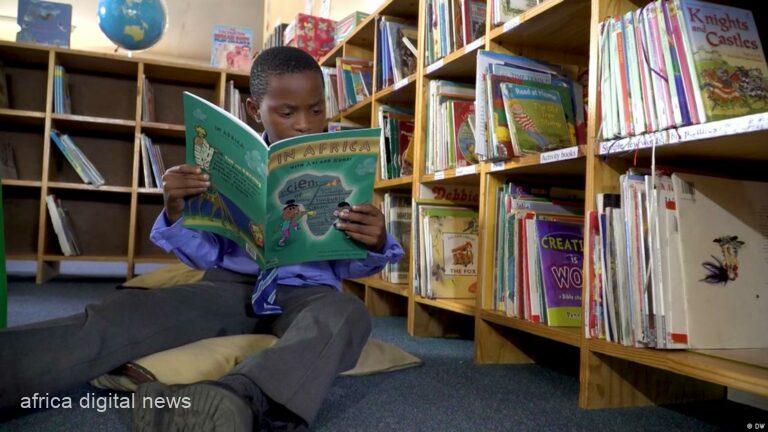When writing stories of your life, it has been often advised not to allow someone else to hold the pen. For many years, Africa has been making a fundamental mistake by largely giving life to the idea of the ‘West’ about Africa by conforming to the stories about the continent that are heavily laced with colonial struggles, conflict, identity crisis, and poverty. One thing that must be established is that while those stories still exist and might still be relevant, they shouldn’t exist as the only lens through which the entire African continent is viewed.
Over the past few centuries, Africa’s cultural contributions have continued to be documented from a Eurocentric perspective. Rather than empower themselves by writing about their own culture, Africans have continued to fuel these narratives, sometimes unsubstantiated by believing them, filming them, and propagating them.
It is rather sad and depressing that today, the average educated African would rather choose to have in-depth discussions about Mungo Park — the young man who was said to have found a river that was never lost or Christopher Columbus, the Italian explorer who allegedly discovered a continent that was not hidden than talk about feats accomplished by their own ancestors. This is certainly not right because the Europeans whom they revere will not do same.
There are many stories about powerful ancient civilisations that once flourished throughout the continent like the prehistoric Land of Punt and the Kingdoms of Aksum and Nubia in northeast Africa; the West African empires of the Ashanti, Mali, and the Songhai; and the Kingdom of Zimbabwe, ancient Egypt and their pyramids, the Nok culture in Nigeria and many other mind-blowing civilizations that Africans will have gained more amplifying.
The truth is that it has to be established that African cultures and traditions in many countries were actually uprooted by colonialism which actually pave the way for the domination of European culture. Furthermore, the sin of the slave trade played a critical role in sending Africans to other parts of the world, robbing them of their identities by forcibly disconnecting them from their mother continent. However, these anomalies can and must be corrected if Africa intends to ever rise and make an impact on the global stage.
What many Africans must understand is that the world could actually be a great beneficiary from learning more about Africa’s cultural beauty and of course its people. So perhaps, students could be encouraged to study African literary giants such as Chinua Achebe and Wole Soyinka while also reading the plays of William Shakespeare, or finding out ways to learn about the impact of leaders like Shaka Zulu just as they often read about Winston Churchill.
In the world of filming, Africans must understand that Hollywood’s narratives about Africa are certainly going to always come with controversies that only complicated their fate further. Sometimes it could be about historical inaccuracies of a movie or why actors who are not ‘originally’ from the continent should not tell African stories. These narratives should not be encouraged and Africans must find ways of owning and changing them.

It has to be established that when Africans fail to tell their stories through their lens, then they shouldn’t expect Hollywood to offer anything special about Africa except fictionalised narratives. But then, Africa’s history doesn’t need to be fictionalised – the continent deserves stories more than simplified accounts of poverty and wars. The continent has seen immense greatness that needs to be celebrated. The continent has made an impact that needs to be acknowledged. Africans are not the nuisance the world treats them as and the narrative must change.
The task ahead for every conscientious African who desires to do away with the stereotypes should be how to break this cycle and reframe the stories which have already been told because, over time, a change in perspective and frames through which the African stories are told will build a new narrative for the continent.
There’s a big need to have Africans tell their own stories from their own specific angle with authenticity. If they fail to do so, certainly Hollywood and other foreign filmmakers will help them do it, and of course, this means a license for them to introduce their worldviews and prejudices.
In several pieces of literature that were written about Africans by non-Africans, pre-colonial African women were depicted as mere housewives and properties of pleasure. In fact, it was quite difficult to see where anything remarkable was introduced about them.
Going forward, Africans must set their sights on creating stories that will truly reflect the real image of our precolonial times, rather than waiting for Hollywood to tell these stories.
Thankfully, the proliferation of social media, bloggers, and citizen journalism aided by the power of the internet and technology has also opened new avenues for Africans to tell their stories. Many youths across the continent are blogging and vlogging daily about issues that they find relevant to their existence. It is time for these avenues to be leveraged and used as a counter flow of news and information about the positive things happening all across the continent. Africa must get these broken identities fixed once and for all!
In conclusion, the economic capacity of the African media to tell the African story is critically important and must be paid attention to. The control and direction of the flow of global news and information are directly related to who has and controls economic power. Mounting up resistance to the current narrative about Africa requires a lot of capital investment due to the fact that the process of gathering, organising, and passing down information through the media and especially across international borders is a capital-intensive venture that many people cannot sustain for a long time, however, as expensive as this venture may be, it will not be as expensive as the reputational damage the continent has suffered and continues to suffer. After all, if you do not tell your story, someone else will tell it for you. The time is ripe for Africa to stop sleeping, the world is moving and is moving really fast.










